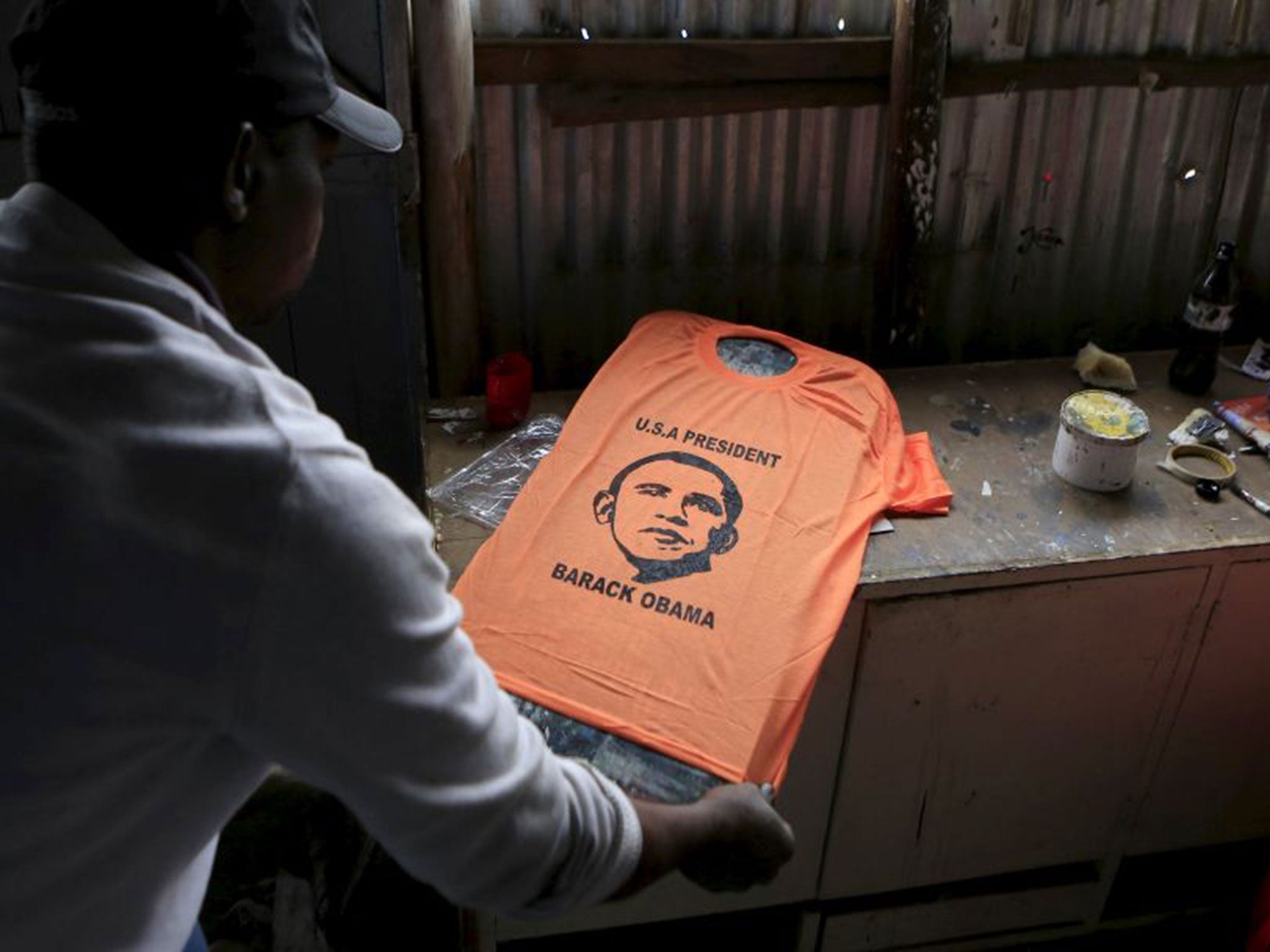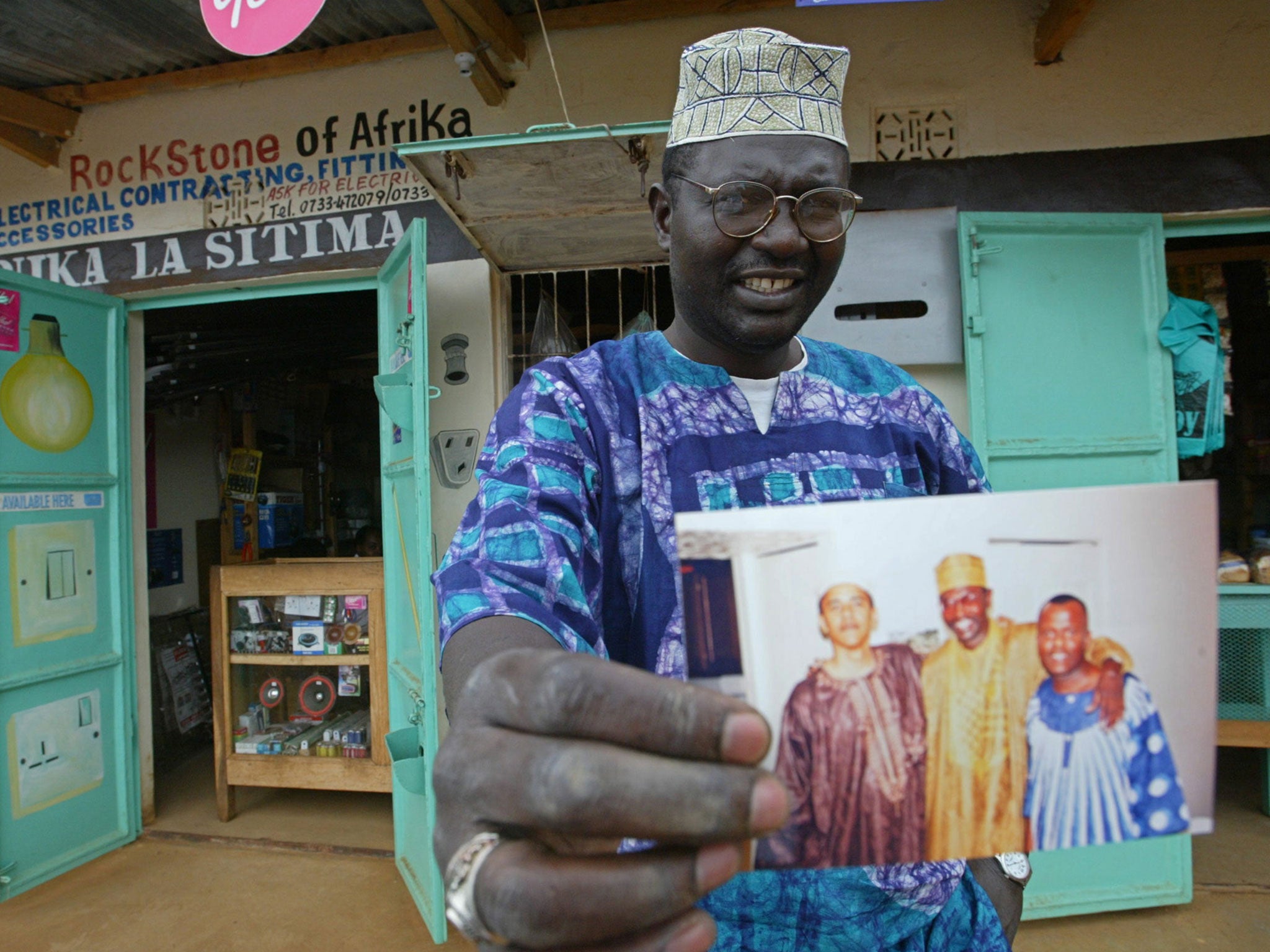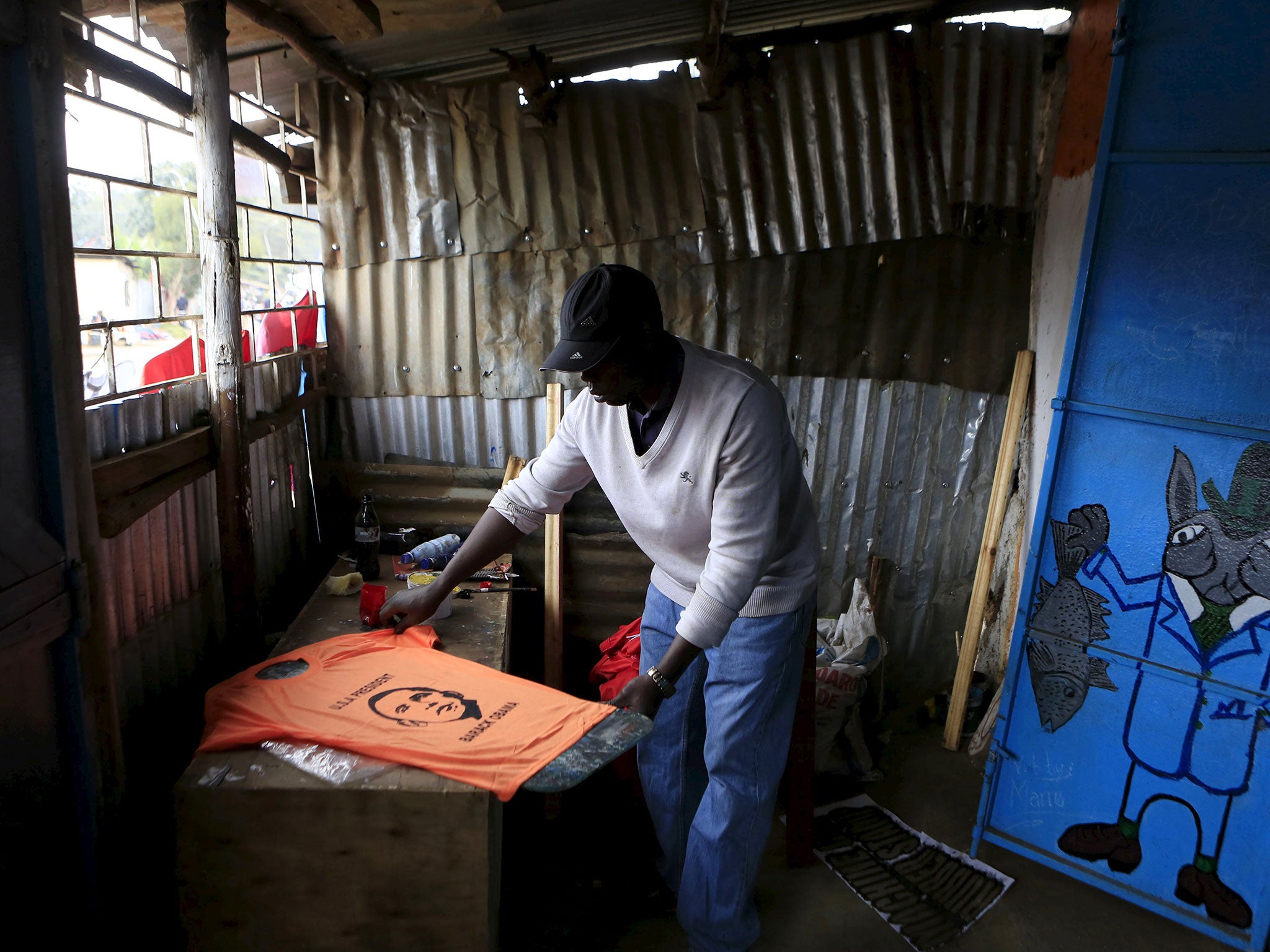President Obama in Kenya: His name sells in the homeland of his father – and his extended family members are cashing in
On the eve of his visit, obsession with the US President shines a light on those who have benefited most

Three years ago, the going rate for an interview with US President Barack Obama’s half-brother, Malik, was $1,500. For the more enterprising of the President’s extended family in Kenya, the Obama presidency has represented a window of opportunity.
Malik Obama, who these days apparently waives the fee reported by the Smithsonian in 2012, is something of an operator. He recently sold for an undisclosed sum private correspondence written by the future president two decades ago, where he confided in his brother, best man at his wedding, that he had doubts about a career in politics.
As Mr Obama arrives in his father’s homeland on Friday for his first visit since coming to power, interest in the more eccentric members of his family, among them a brother living in Nairobi’s slums, is generating serious capital for those with even the most tenuous of connections to Kenya’s most famous offspring. “The Obama brand strikes a chord with Kenyans,” says David Waweru, a Kenyan publisher. “There is a fascination with the both the person and anything that carries his name.”

In Kogelo, the village in western Kenya where the President’s father was born, a distant Obama cousin has built a thriving hotel business on the back of his purported presidential connections.
But it’s the President’s closest relatives who have arguably benefited the most, tapping into a fascination with the black man who made it in a white man’s world, the son of a talented Kenyan economist whose career ended in drink and depression. At a Nairobi bookstore, shelves and shelves of books are dedicated to the Obama phenomenon, among them memoirs by the President’s half-siblings. “The name matters,” says proprietor Chan Bahal. “Obama ‘somebody’ writes something, it goes.”
In the carefully scripted version of his own life, Mr Obama wrote in Dreams From My Father how he once nurtured an almost mythical reverence for the parent who was absent almost all of his life, leaving his American wife, Ann Dunham, in Hawaii when their son was only two.
It was a book by half-brother Mark that would prove most troubling to Mr Obama, debunking the rosy image of his father, who died in a car crash in 1982. In Cultures: My Odyssey of Self-Discovery, he recalled a clash of cultures in his first meeting his brother in 1988.
Mr Ndesandjo, who lives in China, wrote the book not to capitalise on the family name, he said, but to set the record straight, particularly about his father, who he said was a violent man who beat his mother, Ruth Nidesand, a white American. It was a depiction that he believed soured the two men’s relationship.
“We had radically different notions of my father – I hated him at the time and Barack really admired him,” Mr Ndesandjo said last year. “At times, he’s been the most inspiring person that I’ve ever met. At other times, we clash because he’s trying to distance himself from the Obamas in Kenya, including myself.”

Some would argue the President has also distanced himself from the Obamas in the US, including an uncle, “Omar” Onyango Obama, who lived in the US illegally for decades and when caught drink-driving in 2011, reportedly said, “I think I will call the White House.”
Of his Kenyan relatives, Mr Obama is closest to Auma, his half-sister who took him on a tour to meet his relatives during his first visit. She has also written a book, And Then Life Happens, and their relationship has propelled her into the orbit of the likes of Hillary Clinton, whom she considers a friend. Ian Manners, her ex-husband who runs a marquee business in the UK, has shelved for now his opus, Our Brother, Mr President, which through the lens of Mr Obama’s brothers explores how corruption has robbed Africans of opportunity. “They aren’t bitter,” he tells The Independent. “They just feel that this is the card life dealt them.”
It is the youngest brother, George, who has in one sense made the least of his opportunities. Tracked to a Nairobi slum in 2008 on the eve of Mr Obama’s election win, he angrily refuted suggestions that he was living in penury, abandoned by his family. Damien Lewis, a veteran foreign correspondent, briefly took him away from gangland life, and they wrote a book together called Homeland, chronicling his life story, which included an episode self-representing himself and three friends in court for theft, ending in their acquittal.
What Obama Sr might have made of it all will never be known. But Philip Ochieng, his friend and columnist, thinks he would have taken the changing fortunes of his children in his stride. “He was an arrogant man,” he said. “He would have seen it as natural.”
Join our commenting forum
Join thought-provoking conversations, follow other Independent readers and see their replies
Comments